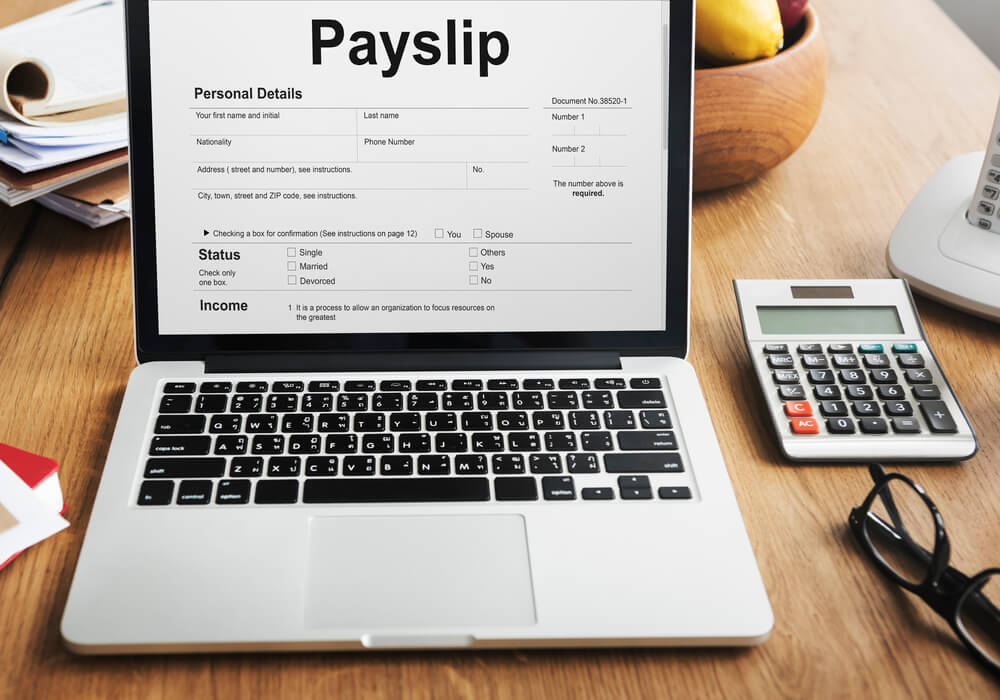Business
Accurate Pay Stub Records: Tips for Employees and Employers

the significance of accurate pay stub records must be balanced. Both employees and employers rely heavily on these documents for various purposes, ranging from understanding income to ensuring legal compliance. In this article, we’ll delve into why accurate pay stub records are crucial for both parties and provide valuable tips on how to maintain them effectively.
1. Introduction to Pay Stub Records
Pay stub records, also known as paycheck stubs or pay slips, are documents provided by employers to employees with each paycheck. These records detail crucial information such as gross earnings, deductions, taxes withheld, and net pay. They serve as a comprehensive breakdown of an employee’s compensation for a specific pay period.
2. Importance of Accurate Paystub Records for Employees
Understanding Income
Accurate pay stub records empower employees to understand their income better. By reviewing these documents, employees can track their earnings, bonuses, and overtime pay, ensuring transparency in compensation.
Budgeting and Financial Planning
Pay stub records play a vital role in budgeting and financial planning for employees. By knowing their exact take-home pay and deductions for taxes and benefits, individuals can create realistic budgets and make informed financial decisions.
Tax Compliance
Accurate pay stub records are essential for tax compliance. They provide the necessary information for employees to file their taxes accurately and claim eligible deductions and credits.
Employment Verification
Pay stub records serve as proof of income for employees when applying for loans, mortgages, or rental properties. They validate employment and income details, facilitating the verification process for landlords, financial institutions, and other entities.
3. Importance of Accurate Pay Stub Records for Employers
Legal Compliance
Employers are legally obligated to provide accurate pay stub records to employees in compliance with labor laws. Failure to do so can result in penalties, fines, and legal disputes.
Employee Trust and Satisfaction
Maintaining accurate pay stub records fosters trust and satisfaction among employees. When employees receive clear and transparent information about their compensation, they feel valued and respected by their employers.
Audits and Documentation
Accurate check stub maker records are essential for audits and documentation purposes. Employers may need to present these records during tax audits, financial audits, or legal proceedings to demonstrate compliance and transparency.
4. Tips for Employees to Maintain Accurate Paystub Records
Reviewing Pay Stubs Regularly
Employees should review their pay stubs regularly to ensure accuracy and promptly identify any discrepancies or errors.
Keeping Track of Deductions and Benefits
Employees need to keep track of deductions for taxes, insurance, retirement plans, and other benefits to ensure consistency and correctness in their pay stub records.
Communicating with Employers
Open communication with employers is key to resolving any issues or concerns regarding records. Employees should feel comfortable reaching out to HR or payroll departments for clarification or assistance.
5. Tips for Employers to Ensure Accurate Paystub Records
Using Reliable Payroll Software
Employers should invest in reliable payroll software that automates the generation of accurate pay stub records and ensures compliance with tax laws and regulations.
Providing Transparent Information
Employers should provide clear and transparent information on pay stubs, including details on earnings, deductions, taxes, and benefits, to make sure everything is clear and news clear.
Training Staff on Payroll Procedures
Proper training of staff involved in payroll processing is crucial to minimize errors and ensure the accuracy of records. Regular training sessions can help employees stay updated on payroll procedures and compliance requirements.
6. Conclusion
Accurate records are indispensable for both employees and employers. They provide clarity, transparency, and compliance in compensation matters, contributing to trust, satisfaction, and efficiency in the workplace. By following the tips outlined in this article, both parties can effectively maintain and utilize records to their advantage.
FAQs (Frequently Asked Questions)
- Why are accurate records vital for employees?
Accurate pay stub records help employees understand their income and budget effectively, comply with taxes, and verify employment details.
- What are the consequences of inaccurate pay stub records for employers?
Employers may face legal penalties, employee dissatisfaction, and financial losses due to inaccurate pay stub records.
- How often should employees review?
Employees should review their regularly, preferably with each paycheck, to identify errors or discrepancies promptly.
- What should employers do if employees find errors in their records?
Employers should investigate and rectify any errors in records promptly, ensuring transparency and fairness in compensation.
- Can employers use electronic pay stubs instead of paper ones?
Yes, employers can provide electronic pay stubs as long as they comply with relevant laws and regulations regarding electronic recordkeeping and employee consent.
-

 Education1 year ago
Education1 year agoWhat is TTU Blackboard: Everything You Need to Know
-

 Health1 year ago
Health1 year agoZtec100.Com Tech Health And Insurance
-

 Business1 year ago
Business1 year agoUnlock the Power of an Online Survey Maker – A Comprehensive Guide
-

 Game1 year ago
Game1 year agoHow to Use Try Hard Guides Wordle Solver Tool?
-

 Tech1 year ago
Tech1 year agoA Comprehensive Guide: CRYPTONEWZHUB.COM COMPUTER
-

 Tech1 year ago
Tech1 year agoTrendzguruji.Me Awareness: Digital Landscape Of 2024
-

 Travel1 year ago
Travel1 year agoFly And Swap Vacations Tips And Tricks You Need To Know
-

 Entertainment1 year ago
Entertainment1 year agoEverything about 588 Area Code

















